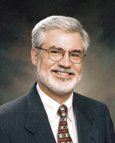
Bill Webb
|
Most of us can relate to fresh starts. In fact, most of us relish them — as well we should.
We rejoice at the miracle of birth and wonder about the potential of a life that begins with a clean slate and what might seem like endless possibilities for accomplishing good.
Friends and family gather around as a young couple (or an older couple) exchange wedding vows. What joys, challenges and other experiences await a newly married couple in the weeks, months, years and generations ahead?
Beginning a new job with a clean slate, a clean workbench or desk and new relationships can be exhilarating. Past vocational successes or failures no longer necessarily hover over us like clouds or create unrealistic expectations.
The athlete who joins a new team or the coach hired to begin coaching at a different school or for a new pro team must feel a bit like the artist staring at a blank canvas. Possibilities may not be endless, but new opportunities abound.
Surely cancer survivors and others who have survived serious illnesses, or who received good news after batteries of medical tests, exult at the prospect of a recovery or clean bill of health from attending physicians. Some say they have been given a new lease on life — and they have!
Many ex-cons make conscious decisions to do their time for past crimes and change their ways upon release from incarceration. Still, most learn that fresh starts are not necessarily easy.
The Bible is loaded with examples of fresh starts.
Abraham is tapped as the father of a nation — a new avocation for a rather successful and prosperous man of the land.
Moses the murderer is tapped for something new, joining with God to rescue a people from Egyptian slavery.
Jacob, who had cheated his brother Esau out of the family blessing due to the firstborn, received a second chance when his estranged brother forgave him and offered a fresh start for their strained relationship.
The disciples of Jesus left their jobs and became followers of the Messiah, fishers of men and eyewitnesses to the earthly ministry of the Christ.
Zacchaeus, tax collector and Roman collaborator, came to terms with being a cheat when he responded to Christ and his perspective changed 180 degrees. Each person healed of physical, mental or spiritual maladies at the touch or command of Jesus started fresh from square one with a clean slate.
Each was a new creation in Christ. This includes first-century Christ-followers and those in succeeding generations.
Those of us blessed to live in the Midwest are especially conscious of the cycles of the seasons readily apparent in God’s creation. Along with the rest of the world, we are also very aware that each year begins another important annual cycle of measurable time.
Jan. 1 is a day of fresh starts for many of us. One of my late grandmothers always believed a New Year’s Day meal including black-eyed peas was important to help ensure a successful year.
Millions of people make resolutions for the coming year to either overcome bad habits or poor lifestyle decisions or to make specific decisions about improving their lives. A new year holds out the prospect of a fresh start with the prospect of a new and improved you or me.
People aspire to be more successful in business, better in family and other personal relationships, more benevolent, more generous, better money-managers, more dedicated to better health choices, more active in church and more faithful to God, to name a few. Others resolve to wrest themselves away from bad relationships or to steer clear of activities or actions that jeopardize their reputations.
Many believers realize making self-improvement commitments to God isn’t so much an annual ritual as a daily — even moment-by-moment — discipline that enables them to be sensitive to failures and mindful of successes in their Christian walk.
Such commitments include doing the right things but also being the kind of people whose “doings” become natural and even predictable. We all know believers whose doing and being are congruent — highly consistent. That’s a worthy aspiration for each of us.
Bill Webb is editor of Word&Way.
